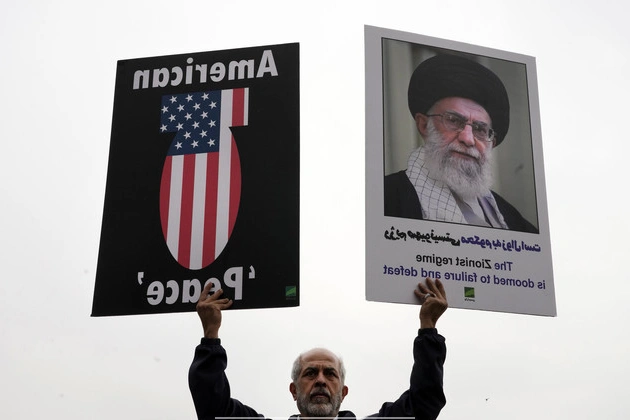
In response to a letter from President Donald Trump concerning its nuclear program, Iran’s president has officially stated that direct negotiations with the United States have been declined. This decision, conveyed by President Masoud Pezeshkian, indicates a potential escalation in tensions between Tehran and Washington.
Indirect Negotiations Remain Open
While direct talks have been ruled out in the response, President Pezeshkian emphasized that the option for indirect negotiations is still on the table. The willingness for diplomatic engagement through alternative means suggests a desire to explore potential resolutions without face-to-face meetings.
Uncertainty Surrounding Trump’s Response
It remains uncertain whether President Trump will consider indirect negotiations as a viable approach. Past attempts at such diplomatic channels have proven unsuccessful, particularly following the U.S.’s withdrawal from the nuclear deal with Iran in 2018.
Stakes and Concerns
Amidst warnings from Israel and the U.S. against Iran’s nuclear ambitions, heightened fears of a military standoff have emerged. Iran’s uranium enrichment activities at levels nearing weapon-grade have raised alarms internationally, prompting calls for stringent actions to prevent nuclear proliferation.
Iran has consistently maintained the peaceful nature of its nuclear program, despite escalating tensions with the U.S. over sanctions and regional conflicts. The recent escalation in uranium enrichment has further fueled apprehensions about Iran’s nuclear intentions.
Continued Pressure and Stalemate
Since assuming office, President Trump has advocated for curbing Iran’s nuclear aspirations. However, recent reports from the U.N.’s nuclear watchdog indicate a concerning acceleration in Iran’s uranium production towards potentially weaponizable levels.
The strained relations between the U.S. and Iran, exacerbated by the previous administration’s decisions, have led to a series of confrontations and retaliatory actions. The complex web of diplomatic tensions underscores the challenges in achieving lasting peace and stability in the region.
Looking Ahead
As the discourse between Iran and the U.S. evolves, the possibility of renewed negotiations remains a crucial aspect of global diplomacy. The need for constructive dialogue and de-escalation efforts is paramount in averting further conflicts and promoting mutual understanding.
It is imperative for both nations to reassess their strategies and seek common ground to address the underlying concerns that have fueled the current impasse. The path to sustainable peace demands a commitment to dialogue, cooperation, and respect for international norms.











